Mexico is a country renowed for its wide and varied harvest of fruits. In our country, millions of tons of tropical fruits and citrus fruits are cultivated, making Mexico one of the world's leading fruit-producing countries.
In addition, Mexican fruits are known for ther delicious taste and being rich in vitamins, minerals, and antioxidants that help maintain good health.
At Citrofrut, we process a variety of nectar fruit products with 100% natural properties.
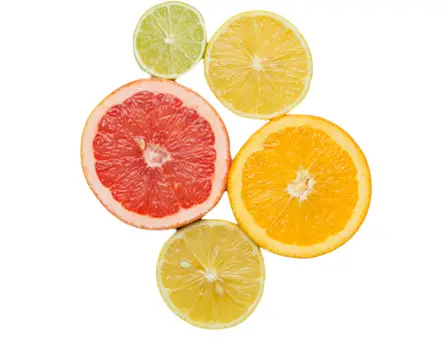
We offer a wide variety of citrus and tropical fruit products made with the best Mexican fruits, including nectar fruit products.
More than 20% of our processed nectar fruit products come from our own plantations, which helps us maintain our high product quality standards. Both the citrus processing and juice making processes are very sustainable, as nothing goes to waste. We extract the juice and pulp as ingredients for the food and beverage industry, especially fruit juices. We recover essential oils and flavors used in the flavor industry, nectar fruit products and fragrances, and transform fruit peels into an animal feed ingredient that is rich in energy and fiber.

The taste and freshness of these fruits contribute to a flavorful experience when consuming Citrofrut nectar fruit products. Additionally, our juices and other natural products contain vitamins, minerals, and other nutrients to promote a healthy diet.

Veracruz, San Luis Potosí, Hidalgo, Tamaulipas, Nuevo León, Tabasco, Yucatán, Puebla, Michoacán

Mexico is one of the main producers of oranges in the world, with the majority of the country's crop being Valencia oranges.
These fruits are known for their deeper color and sweet taste.
They are harvested twice a year, from September to October with the early orange, and from November to April with the late one.
Learn more
Citrofrut is a processor and transformer of Valencia oranges. To date, Citrofrut has over 2.3 million orange trees in its orchards. All of our orchards where we harvest the fruit to make our nectar fruit products are undergoing Sustainable Agriculture Accreditation.

Persian lime is one of our fruit products.
Mexico is the world's leading producer of Persian lime. This fruit is larger than a Mexican lime, making it ideal for beverages, nectar fruit products, and food preparation.
The production of Persian lime in Mexico is consistent, however, from May to September there is a higher level of production in its growing areas such as Oaxaca, Veracruz, Jalisco, and Tamaulipas.
Learn more
We process Persian lime.

Mexico is becoming an important producer of lemons in the world. This variety is yellow and even more acidic than the Mexican lime, making it perfect for non-sweetened food and beverage preparations.
The peak availability of Italian lemons occurs in July, August, October, and November.
Learn more
Citrofrut has planted over 800 hectares of this fruit and continues to increase its lemon processing volumes to make more nectar fruit products.

Mexico is a key player in the production of this fruit on a global scale. There are three main varieties popularly known as White, Red and Pink Grapefruit. The varieties are mainly identified by the color and are ideal for nectar fruit products.
Learn more
Citrofrut has planted more than 500 hectares of grapefruit, which makes us an important processor of this fruit in Mexico.
The largest grapefruit harvest is obtained during the months of October to December. These Mexican fruits are mainly produced in the states of Michoacán and Veracruz.

Mexico is the third largest grower of Tangerines in the world. A Tangerine is a variety of Mandarin orange that is smaller and oblate in shape and has a darker red-orange color with sections that are easily separated and a great option for nectar fruit products.
Learn more
Citrofrut has planted over 350 hectares of these Mexican fruits to make nectar fruit products. The peak season for tangerine production is from October to December.

Mexico is one of the largest producers in the world of mango varieties such as the Tommy mango. Cultivated along Mexico's Pacific coast, from Chiapas to northern Sinaloa, these Mexican fruits have a balance of tender sweetness, fresh flavor, and acidity with some fiber content and a bright orange-yellow color.
Learn more
Citrofrut processes single strength and concentrated purees, with high quality standards, selling to the top clients worldwide in the juice, baby food, ice-creams and smoothies industries, nectar fruit products, among others.

Also known as "the golden mango" due to its bright yellow color and sweet flavor, these varieties are grown in regions near the Pacific coast from Chiapas to Jalisco, with their blooming season occurring from April to August. These Mexican fruits are sweeter and do not contain fiber in their composition, making them a preferred option for premium single-strength blends and nectar fruit products.
Learn more

Brazil is known worldwide for its high-quality fruits, which is why Citrofrut processes mangoes in our Vía Nectare production plant located in the city of Taquaritinga, in the state of Sao Paulo. There, we produce purees and concentrates of Palmer mangoes, which not only bring many health benefits but also have a unique and unmistakable flavor. Our processing season in Brazil takes place during the summer, which starts in December and ends in March.
Learn more






As an integral part of our operations, Citrofrut focuses on the elaboation of special products derived from the fruits we process. These special products are used in the preparation of food and beverage flavors, personal care products and in other applications of the food and chemical industry.
Special products in our portfolio:
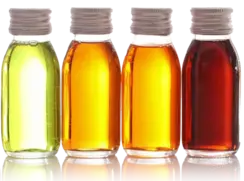
The oil sacs that are found in the peel of the fruit are broken during the extraction process. The oil is obtained when you separate the oil from the water-oil emulsion using a centrifuge. The color of the oil varies depending the color of the peel.
The Cold Pressed Oils are used in flavor, beverage, nectar fruit products and fragrance applications.
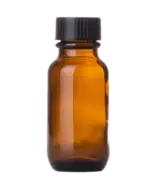
Also known as oil phase, is obtained during the evaporation of the juice. The volatile components are recovered and separated in two: the oil phase and the water phase. The essence oil has a clear color.
The Essence Oil is commonly used in the preparation of add-backs or flavor packs for the juice and beverage industry.
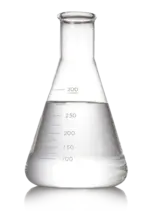
After the juice extraction process, the peel and the inner part of the fruit is sent to a press to remove all the remaining oil and moisture. The press liquor is sent to the equipment Waste Heat to be concentrated and form molasses, and by means of distillation the d’limonene is recovered.
The D’limonene is used in health care products and also in the chemical industry as active ingredient in cleaning products or in many other products to mask odors.
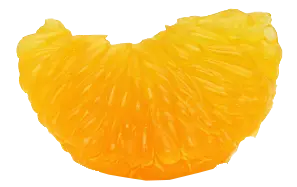
The broken pieces of cells sacs and segment walls that are part of the citrus fruit.
The Pulp is commonly added back in the final juices to add texture; or mouthfeel, additionally it can be used as source of fiber, usually on nectar fruit products.
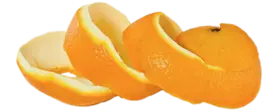
After the extraction process, the peel is sent to a press to remove the remaining of oil and juice, afterwards the peel is cut in small pieces, washed, dried and packed in sacks and useful for nectar fruit products.
The Washed Peel is used in the food industry to obtain pectin, which is used as gelling agent in jams and jellies. Pectin is also added to dessert fillings and sweets, used as stabilizer in fruit juices, and as source of dietary fiber.
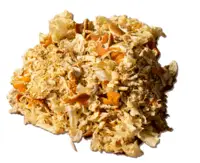
After the extraction process, the peel is sent to a press to remove the remaining of oil and juice, afterwards the peel is cut in small pieces and dried.
The Unwashed Peel is sold for cattle feed as source of energy (protein and carbohydrates).